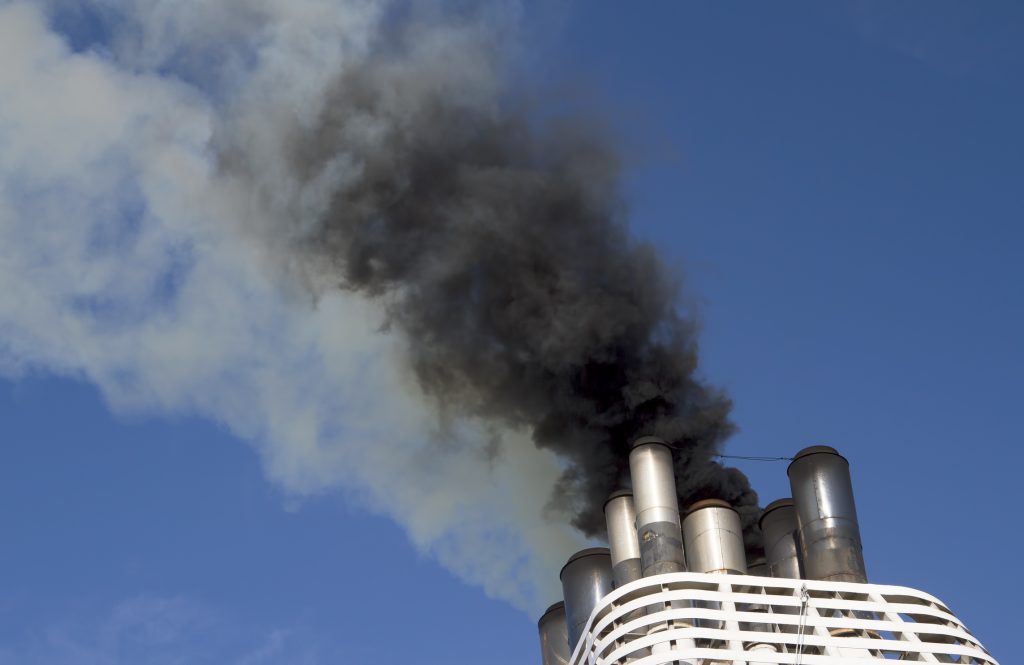Resolution on Black carbon in the Arctic: IBIA contributes constructively
IBIA made positive contributions to discussions about black carbon (BC) emissions at the 77th session of the IMO’s Marine Environment Protection Committee (MEPC 77), where the focus was on measures to reduce BC emissions in or near the Arctic. Black carbon is a potent short-lived contributor to climate warming, and particularly harmful when deposited on snow and ice.
Prior to MEPC 77, IBIA identified an issue with a proposed draft MEPC resolution for voluntary measures to reduce black carbon emission from ships operating in or near the Arctic. (More information on this link).
IBIA’s Director and IMO Representative, Unni Einemo, put our points across with the following statement to MEPC 77:
QUOTE
IBIA has previously commented extensively on this subject in joint submissions with IPIECA to MEPC 75 and to PPR 8, as well as in statements made during those meetings. In the interest of time, we will not go into detail and only mention two key points:
Firstly, fuel type has some impact on black carbon emissions. LNG and methanol are particularly effective at significantly reducing PMs, including black carbon. For HSFO, VLSFO and MGO, however, the type of engine, and engine load, are much more significant factors in determining the propensity to produce black carbon during combustion.
Secondly, fuel testing data indicate very, very strongly that the VLSFOs supplied to the market so far are typically much less aromatic and more paraffinic than HSFO. The shift of the majority of the global fleet from HSFO to VLSFO since the start of 2020 should therefore have helped reduce black carbon emissions compared to pre-2020.
IBIA continues to support adopting effective voluntary measures to reduce black carbon emissions by ships operating in or near the Arctic, and we therefore support in principle the proposed draft MEPC resolution in MEPC 77/9. Cleaner fuels are abundantly available, and the text includes “alternative fuels or methods” that have been shown to reduce black carbon emissions, and is hence goal-based and method-agnostic.
There is, however, a problem with the reference to ‘low aromaticity’ in the final paragraph. Aromaticity is not well understood, and there is no test method readily available to check if a fuel has low or high aromaticity, neither for distillates nor residuals.
We therefore propose that the text is changed to simply remove the reference to low aromaticity so as not to cause unnecessary confusion.
UNQUOTE
Our proposal was well received and taken onboard, resulting in the reference to “low aromaticity” being taken out.
While the draft resolution was widely supported, serious concerns about parts of the language were raised by some member states; in particular objecting to references to findings about BC in the 4th IMO GHG Study which were not deemed scientifically rigorous. These objections were sufficiently strong to hold up adoption of the draft resolution in plenary.
Instead of kicking the can down the road to the sub-committee on Pollution Prevention and Response (PPR) to sort out the draft, an informal group met after plenary meeting hours to work on a compromise text. IBIA took part in this informal group where we made constructive proposals to amend the text, suggesting to remove references to science which there was no consensus on. The amended draft agreed in the informal group was presented to plenary on the final day of MEPC 77, where it was adopted.
The crucial part of the resolution is in the final paragraph, which urges Member States and ship operators to voluntarily use distillate or other cleaner alternative fuels or methods of propulsion that are safe for ships and could contribute to the reduction of Black Carbon emissions from ships when operating in or near the Arctic.
IBIA considers the resolution to be a good outcome after years of long and difficult discussions, and hope every effort is made by ships operators to adopt the most effective measures available to them for voyages in the Arctic region.
MEPC 77 also agreed the terms of reference for the PPR Sub-Committee’s future work on reduction of the impact on the Arctic of Black Carbon emissions from international shipping.
